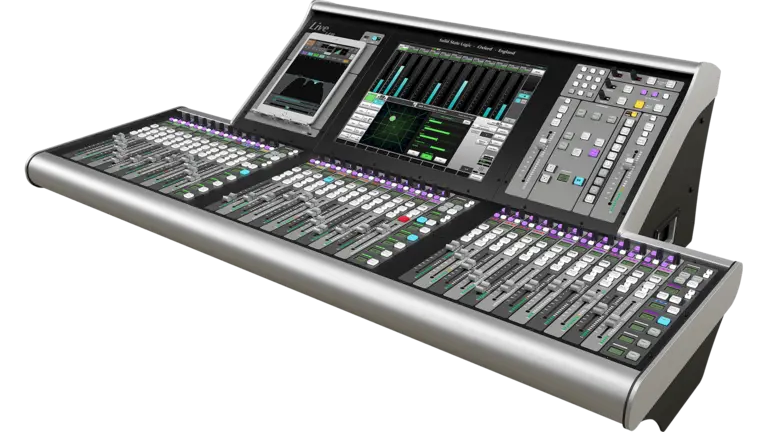The New Era of Hip Hop in 2025: Evolution, Innovation, and Cultural Revolution
Hip hop is a movement. It’s never been just a genre or a sound; it’s an evolving culture that shapes the world around it. From its origins in the Bronx block parties of the 1970s to the global phenomenon it is today, hip hop has always been about storytelling, innovation, and self-expression. As we step deeper into 2025, it’s clear that hip hop is once again undergoing a massive transformation. This isn’t just about beats and rhymes anymore—it’s about redefining identity, technology, and culture on a global scale.
In this article, we’re diving into the heart of hip hop’s current evolution, exploring the new generation of artists, trends, and movements that are shaping the sound of today and tomorrow.
Also best top-best-superpower-movies-streaming-platforms/
Hip Hop in 2025: More Than Music
By 2025, hip hop has transcended music. It’s a cultural juggernaut influencing fashion, technology, activism, and business. Rappers are no longer just entertainers—they’re entrepreneurs, thought leaders, and cultural ambassadors. With social media platforms and Web3 technologies reshaping how artists interact with fans, hip hop is more interactive and global than ever.
Global Voices Taking Over
The globalization of hip hop is one of the most exciting shifts in recent years. While American cities like New York, Atlanta, and Los Angeles remain influential, new epicenters have emerged. Lagos, Johannesburg, London, Seoul, and São Paulo are becoming breeding grounds for groundbreaking sounds.
African hip hop artists are bringing traditional rhythms and dialects into the spotlight. Rappers like Nasty C from South Africa and Odumodublvck from Nigeria are redefining what it means to be a hip hop artist on the continent. Their lyrical content speaks to political issues, daily life struggles, and the celebration of African culture, all wrapped in infectious beats and melodies.
In Asia, Korean hip hop continues to flourish, but in 2025, it’s more than just an offshoot of K-pop. Artists like Balming Tiger and Coogie are blending experimental production with raw, introspective lyrics. Meanwhile, Japanese hip hop is seeing a renaissance, with acts like ¥ellow Bucks merging trap sounds with traditional Japanese aesthetics.
The Rise of the Multi-Genre Artist
Gone are the days when artists stayed in one lane. The new generation of rappers and producers doesn’t just blur the lines between genres—they demolish them entirely. What’s hip hop today? It might sound like drill, punk rock, hyperpop, jazz, or something totally new.
Artists like Redveil, Jean Dawson, and Teezo Touchdown exemplify this. They aren’t afraid to sing, scream, or rap over distorted guitars or glitchy synths. The genre fusion speaks to a younger generation that grew up on streaming platforms, playlists, and TikTok—a generation that doesn’t care about traditional genre boundaries.
In 2025, authenticity isn’t tied to sticking with one sound. It’s about pushing your art into new territories and being unapologetically yourself.
Lyrical Evolution: Consciousness and Vulnerability
For a while, mainstream hip hop was dominated by themes of wealth, status, and success. While those narratives still exist, there’s a noticeable shift toward vulnerability and introspection in the lyrics of many emerging artists.
Rappers like JID, Saba, and Little Simz are telling deeply personal stories, grappling with mental health, trauma, and societal issues. This wave of honest, emotionally charged lyricism resonates with fans looking for something real and relatable.
The conversation around mental health in hip hop has never been more open. Artists are dismantling the old stigma around emotional vulnerability, using their music as therapy for both themselves and their listeners. Tracks about depression, anxiety, and healing are becoming anthems for a generation that values emotional authenticity.
Production in 2025: The New Soundscape

Production in hip hop has always evolved, but 2025 is showcasing some of the most experimental sounds yet. Thanks to advancements in technology, producers are using AI-assisted tools, virtual instruments, and spatial audio to create immersive soundscapes that feel almost otherworldly.
Producers like Kenny Beats, Kaytranada, and Pi’erre Bourne continue to innovate, but there’s also a new wave of bedroom producers pushing boundaries with minimal setups and maximum creativity. Beat-making has become more democratized, with software like FL Studio and Ableton Live more accessible than ever. Add AI plugins and virtual reality studios into the mix, and the result is production that’s futuristic, diverse, and boundary-pushing.
Drum patterns are shifting, too. The dominance of trap hi-hats and booming 808s is being challenged by polyrhythmic beats influenced by Afrobeats, dancehall, and baile funk. Melodies are drawing from lo-fi, jazz, and even medieval music. There’s no longer a single sound that defines hip hop production in 2025—there are endless possibilities.
The Business Side: Ownership, Independence, and Web3
Artists in 2025 are more business-savvy than ever. The era of signing away masters to major labels is fading. Independence is the name of the game, and technology is making it easier for artists to control their careers.
Web3 platforms and blockchain technology are playing huge roles in this shift. NFTs may have had their boom-and-bust cycles, but the underlying tech has allowed artists to create decentralized fan communities, release music directly to supporters, and ensure they retain ownership of their work.
Rappers like 3LAU and Latasha have been pioneers in this space, showing how smart contracts and blockchain can provide artists with transparency, control, and fair compensation. In 2025, these ideas are becoming mainstream, with more artists leveraging Web3 to bypass traditional industry gatekeepers.
Merch drops, exclusive content, and virtual concerts are generating new revenue streams. Fans are no longer passive listeners; they’re active participants, co-owners, and collaborators.
Fashion and Aesthetics: From Streetwear to Avant-Garde
Hip hop fashion has always been a reflection of the culture’s identity and attitude. In 2025, that fashion is more experimental and inclusive than ever. Streetwear still reigns, but there’s a growing influence from avant-garde fashion houses and sustainable designers.
Rappers are embracing gender-fluid styles, bold color palettes, and unconventional silhouettes. Artists like Lil Nas X, Doja Cat, and Playboi Carti are pushing fashion boundaries, appearing in custom couture that blends streetwear with high fashion.
Sustainability is also becoming a key concern. Many hip hop artists are partnering with eco-conscious brands or launching their own lines that emphasize ethical production. Thrift culture, DIY customization, and upcycling are all part of the movement, challenging the fast-fashion model that dominated in the past.
Hip Hop and Activism: The Voice of the People
Hip hop has always had activist roots, from Public Enemy’s political anthems to Tupac’s revolutionary spirit. In 2025, activism in hip hop is evolving into direct action. Artists aren’t just rapping about injustice; they’re creating community initiatives, funding grassroots organizations, and running for office.
Rappers like Killer Mike continue to advocate for Black-owned businesses and economic empowerment. Meanwhile, newer voices are emerging to address climate change, LGBTQ+ rights, and immigration reform. Music is just one tool in a larger strategy to push for systemic change.
Social media has given these artist-activists a powerful megaphone. They’re organizing protests, fundraising, and educating fans in real time. Hip hop is once again proving that it’s the voice of the streets, unafraid to challenge the status quo.
Women in Hip Hop: Leading the Charge
In 2025, women aren’t just breaking barriers in hip hop—they’re leading the charge. The success of artists like Megan Thee Stallion, Cardi B, and Nicki Minaj paved the way for a new generation of female MCs who are unapologetic, diverse, and dominating every aspect of the culture.
Rappers like Flo Milli, Rico Nasty, and Ice Spice are delivering hits, but they’re also redefining femininity and power in hip hop. They’re not confined to one aesthetic or message; they rap about everything from self-love and empowerment to raw, gritty street life.
Beyond solo artists, female producers and engineers are finally getting recognition. Names like WondaGurl and Tokimonsta are respected in an industry historically dominated by men. In 2025, the narrative is changing, and women are at the forefront, driving hip hop’s innovation.
The Future of Live Performances: Immersive and Virtual
Live shows have come a long way since the pandemic forced artists to rethink performance. In 2025, concerts are immersive experiences that blur the line between reality and the digital world. Augmented reality (AR), holograms, and virtual reality (VR) are transforming how fans experience live hip hop.
Artists are performing in virtual arenas, with fans attending from anywhere in the world through VR headsets. Meanwhile, physical concerts are incorporating elaborate stage designs, drone shows, and interactive elements that create a multi-sensory experience.
This hybrid model allows artists to reach wider audiences while offering personalized experiences. VIP fans can unlock exclusive content or even interact with AI-generated avatars of their favorite artists. The future of hip hop performance is interactive, innovative, and limitless.
What’s Next? Hip Hop’s Infinite Potential
The beauty of hip hop has always been its ability to adapt, absorb, and evolve. In 2025, hip hop isn’t just surviving—it’s thriving in ways that its early pioneers could only dream of.
As technology, globalization, and cultural shifts continue to shape the genre, one thing remains constant: hip hop is a voice for the people. Whether it’s through an AI-assisted beat, a VR concert, or a lyric that speaks to the struggles and triumphs of life, hip hop will always find a way to stay relevant.
The new era of hip hop isn’t about following trends. It’s about leading movements. And as we look ahead, one thing’s for sure—hip hop’s future is limitless.
Slug: the-new-era-of-hip-hop-2025-evolution-and-future-trends
Description: Hip hop in 2025 is evolving like never before, blending genres, embracing technology, and amplifying global voices. From AI-powered production to independent artist revolutions, this article explores the future of hip hop, highlighting emerging trends, rising stars, and the cultural shifts shaping the next generation of rap music.







My brother suggested I might like this blog. He was totally right. This post actually made my day. You can not imagine simply how much time I had spent for this info! Thanks!
Thanks for sharing. I read many of your blog posts, cool, your blog is very good.
Can you be more specific about the content of your article? After reading it, I still have some doubts. Hope you can help me. https://www.binance.com/ar/register?ref=V2H9AFPY
I don’t think the title of your article matches the content lol. Just kidding, mainly because I had some doubts after reading the article.
Thank you for your sharing. I am worried that I lack creative ideas. It is your article that makes me full of hope. Thank you. But, I have a question, can you help me?
Thank you for your sharing. I am worried that I lack creative ideas. It is your article that makes me full of hope. Thank you. But, I have a question, can you help me?
Thanks for sharing. I read many of your blog posts, cool, your blog is very good.
Your article helped me a lot, is there any more related content? Thanks!
Thanks for sharing. I read many of your blog posts, cool, your blog is very good.
Thank you for your sharing. I am worried that I lack creative ideas. It is your article that makes me full of hope. Thank you. But, I have a question, can you help me?
Your article helped me a lot, is there any more related content? Thanks!